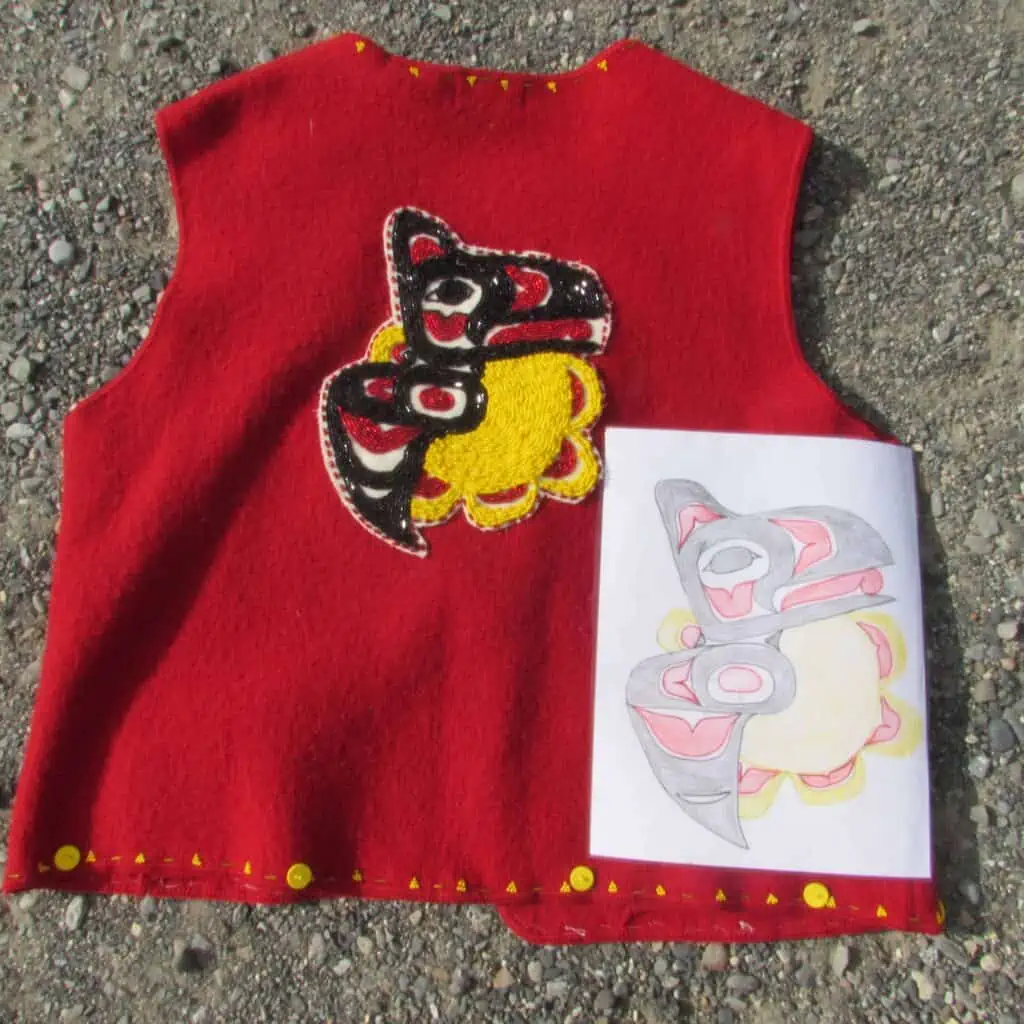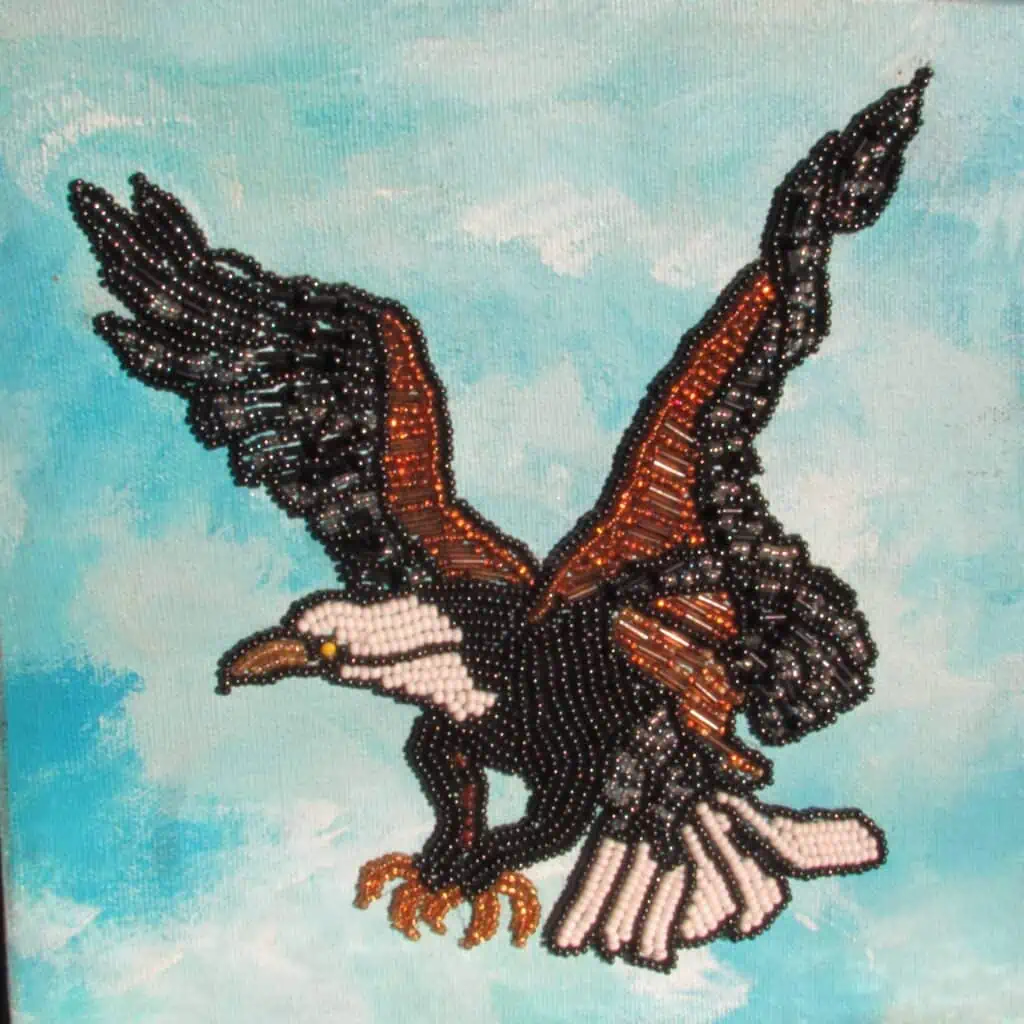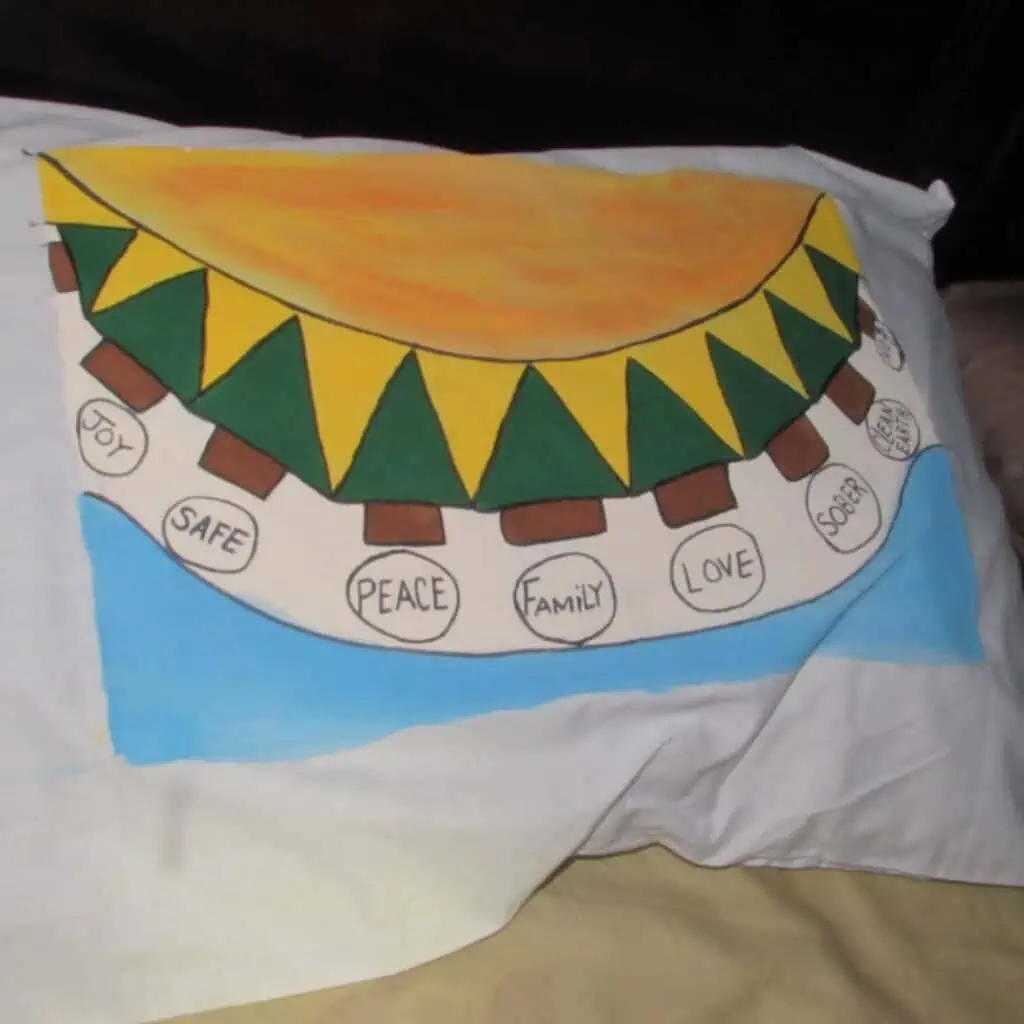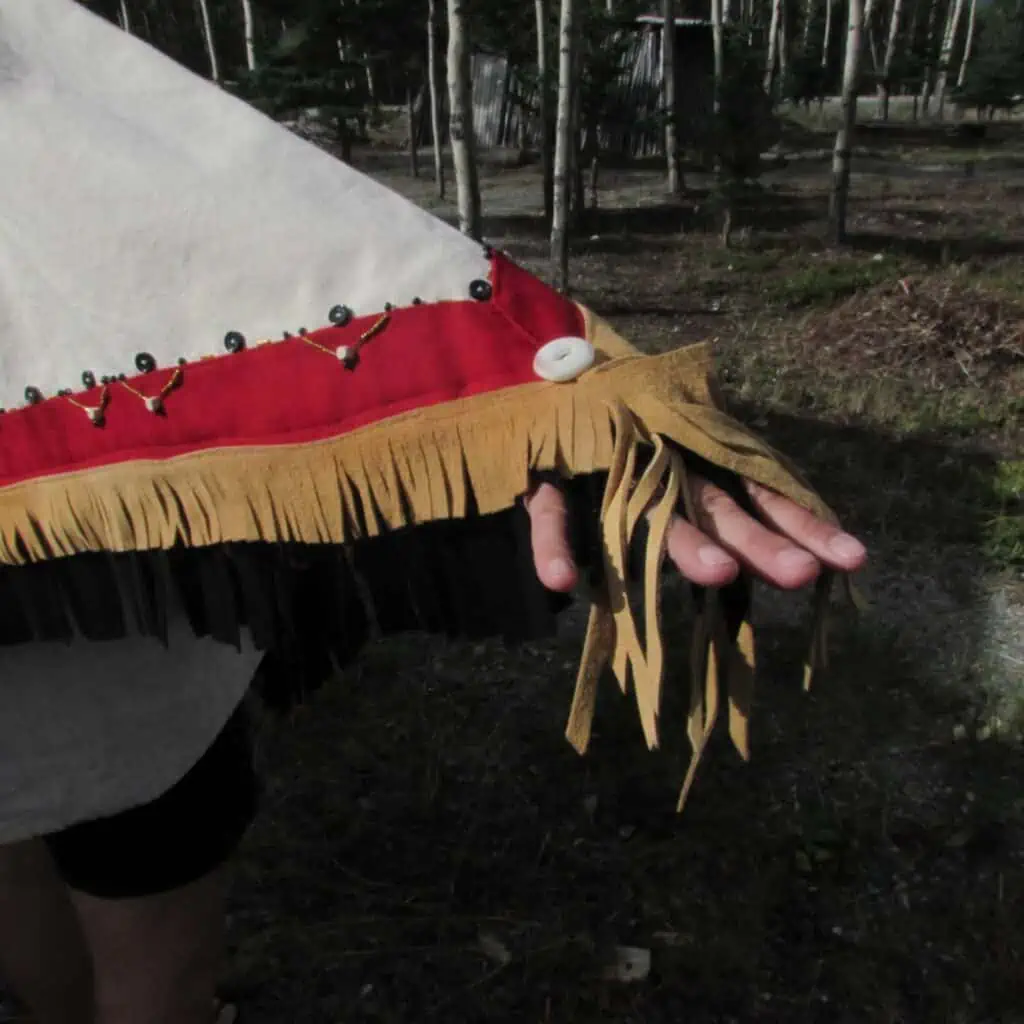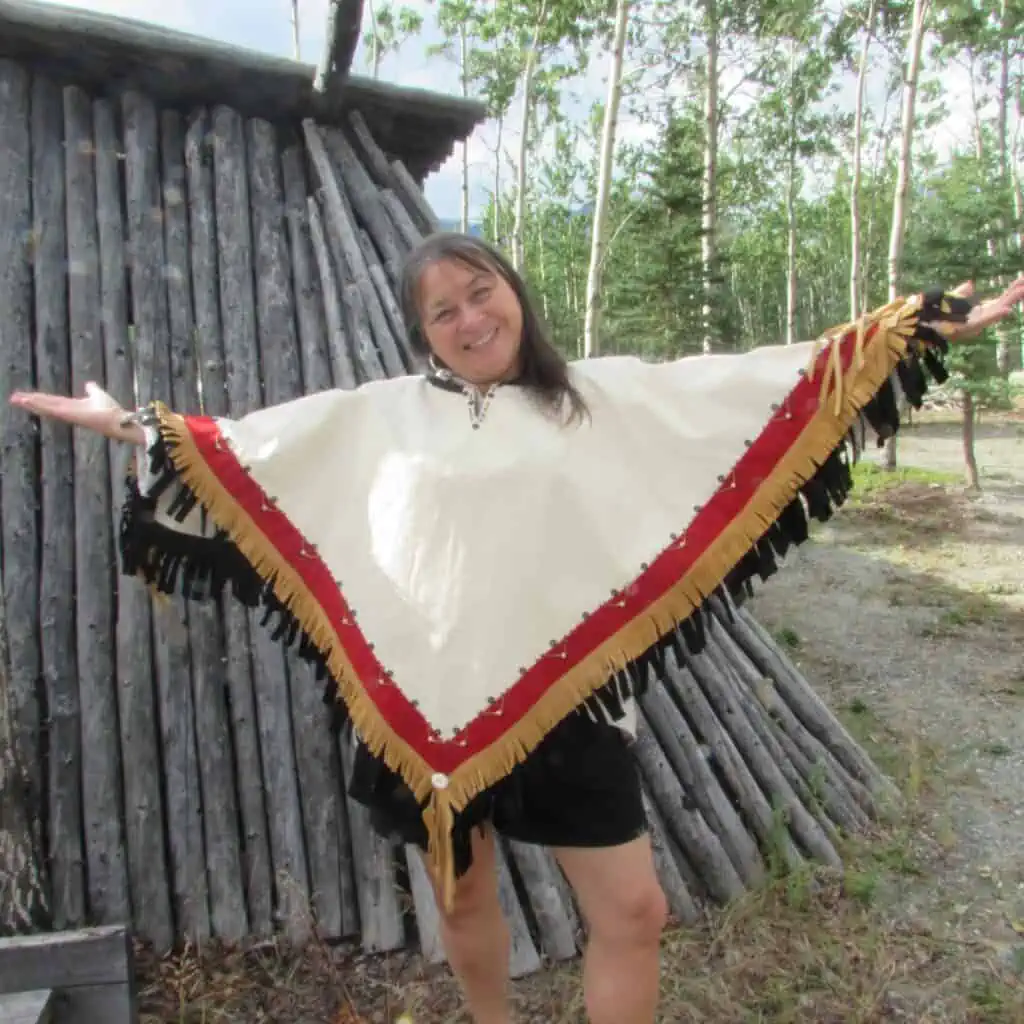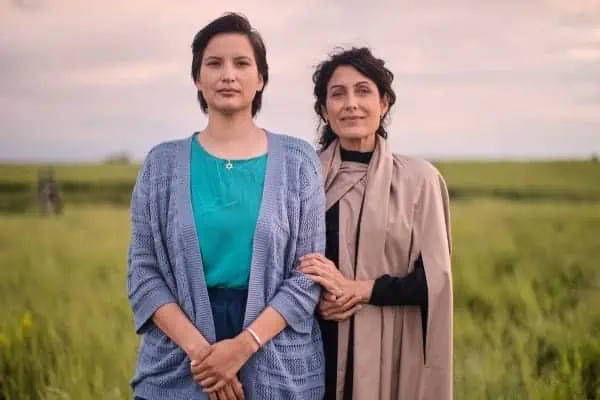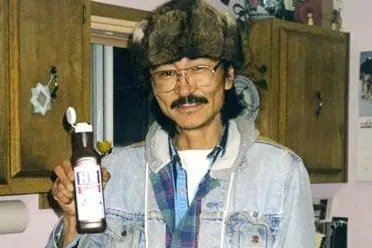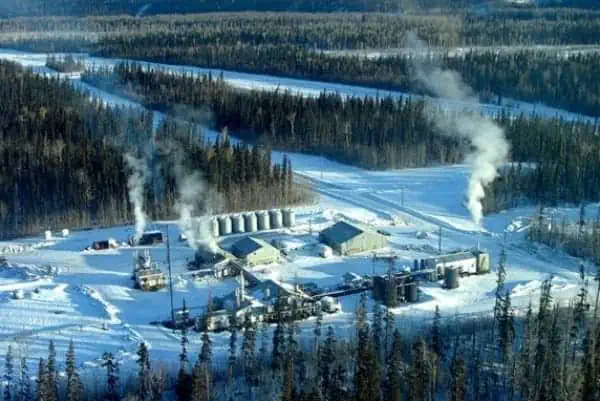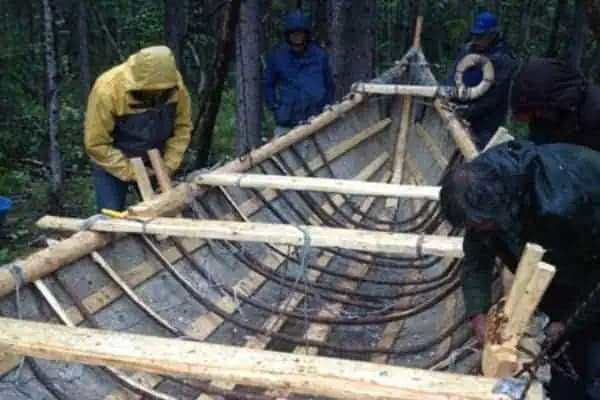“Artists show the world unseen,” says Tahltan First Nation artist Rhoda Merkel. “Teachers show students a better form of themselves.”
Merkel, who was raised in Whitehorse but lives in Atlin, combines both talents in her newest project, the Sam Johnston Storytelling Festival, which takes place Tuesday, March 7 in Teslin.
The festival is a collaboration, between Teslin School, the Teslin Tlingit Heritage Centre and Yukon Arts ED-Venture, a program Merkel co-ordinates for the Department of Education. Legends including How Raven Stole the Sun, Salmon Boy, How Summer Came to the Yukon, and Crow and Tlingit Princess (a Sam Johnston story) will be dramatized into plays by the children.
“The festival is really meant to honour Sam Johnston and all he’s done for our community.”
Sam Johnston is the chief of the Teslin Tlingit Council and a renowned storyteller. He is also a former Speaker of the Yukon Legislature. The project incorporates stories told by Johnston and his friends and complements the school curriculum.
For over 14 years Merkel has collaborated with elders and artists to offer workshops and programs in schools, at the Whitehorse Correctional Centre, and under the kids tent at the Atlin Arts and Music Festival.
Her goal is to give people the power to see the good within themselves. “I teach transformation,” says Merkel.
Her own story is one of transformation from teen artist to mentor.
“The Yukon made me,” says Merkel, who started in Ted Harrison’s art class at F.H. Collins. In the summers she worked for the Council of Yukon First Nations compiling and cataloguing stories told by elders. “Now I’m a storyteller,” she says.
At Yukon Native Products, a manufacturer and retailer of parkas, First Nation fashion and art, she worked alongside craftswomen.
“My mother was a seamstress and she and our aunties made us beautiful, rich clothing.” Today Merkel, a self-proclaimed fashionista, makes regalia.
Before she went to Toronto as a young adult, Merkel “had the honour to work with Yukon artists.” But, in the city she realized “if I don’t start learning these techniques they’ll die.”
During Expo ’86 in Vancouver she returned west to manage the boutique in the Yukon Pavilion. In 2010 she was the Artist Liaison at the Vancouver Olympics for the Yukon First Nation contingent, which evolved into the Adaka Festival, and the revival of interest by First Nations in artistic expression. In that time she also realized her role as an artist and teacher.
“In the ‘90s land claims diverted attention from arts and culture to politics. After settlement, we’re back to art and cultural centres run by our own people who are taking ownership of our arts and culture.”
Merkel believes “Art will provide the tools to heal from residential school.” She has seen it happen at the Whitehorse Correctional Centre in her “Perfect World” program. Merkel recounted a creation story that guided the inmates to create their vision of a perfect world on a pillowcase.
“People have a sincere desire to see the good in themselves. If someone comes along with a little light, and the chains come off, they can see themselves and others in a better light.”
The pillowcase acts as a reminder. “If you have a hard day, you just need to put your head down on your pillow and rest. When you wake up you can remember that each day is a new day for you to create.”

